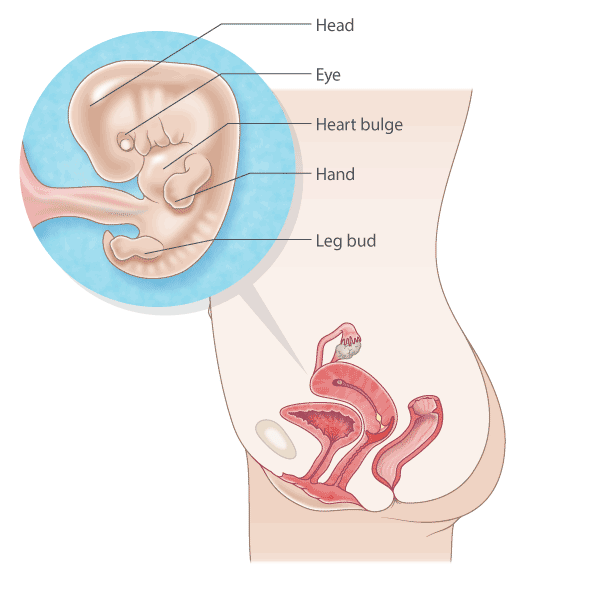
Week 8 of Pregnancy: A Comprehensive Guide
The eighth week of pregnancy marks a significant milestone in the development of your baby. During this week, your baby’s organs continue to develop rapidly, and you may start to experience some noticeable changes in your body.
Your Baby’s Development
At 8 weeks, your baby is about the size of a raspberry and weighs less than an ounce. Despite its small size, your baby is undergoing tremendous growth and development.
- Head and Brain: Your baby’s head is now more proportionate to its body, and the brain is rapidly developing. The eyes, ears, nose, and mouth are all starting to take shape.
- Heart and Blood Vessels: The heart is fully formed and beating regularly. The major blood vessels are also developing, and the circulatory system is beginning to function.
- Limbs: The arms and legs are growing longer, and the fingers and toes are starting to form.
- Internal Organs: The kidneys, liver, and intestines are all developing rapidly. The pancreas is also beginning to produce insulin.
- Embryonic Membranes: The amniotic sac and placenta are continuing to develop and provide protection and nourishment for your baby.
Your Body’s Changes
During the eighth week of pregnancy, you may start to experience some noticeable changes in your body. These changes are caused by the hormonal shifts and the growth of your uterus.
- Morning Sickness: Morning sickness is a common symptom of pregnancy, and it usually peaks around the eighth week. It can cause nausea, vomiting, and a loss of appetite.
- Fatigue: You may feel more tired than usual during the eighth week of pregnancy. This is due to the increased levels of progesterone, which can cause drowsiness.
- Breast Tenderness: Your breasts may become tender and swollen as they prepare for breastfeeding.
- Frequent Urination: As your uterus grows, it can put pressure on your bladder, causing you to urinate more frequently.
- Mood Swings: The hormonal changes during pregnancy can also affect your mood, causing mood swings and irritability.
Prenatal Care
During the eighth week of pregnancy, it is important to continue with your prenatal care. Your doctor will likely schedule an ultrasound to confirm your pregnancy and check on your baby’s development. They will also perform a physical exam and discuss any symptoms you are experiencing.
Nutrition
Eating a healthy diet is essential for both you and your baby during pregnancy. During the eighth week, you should focus on consuming foods that are rich in:
- Folic Acid: Folic acid is a B vitamin that is essential for preventing neural tube defects in your baby. Good sources of folic acid include leafy green vegetables, citrus fruits, and fortified cereals.
- Iron: Iron is necessary for the production of red blood cells. Good sources of iron include red meat, beans, and lentils.
- Calcium: Calcium is important for the development of your baby’s bones and teeth. Good sources of calcium include dairy products, leafy green vegetables, and fortified foods.
- Protein: Protein is essential for the growth and development of your baby. Good sources of protein include lean meats, poultry, fish, and beans.
Exercise
Moderate exercise is generally safe during pregnancy, and it can help you stay healthy and feel better. However, it is important to avoid activities that are too strenuous or that involve a risk of falling.
Other Tips
Here are some additional tips for the eighth week of pregnancy:
- Get plenty of rest.
- Avoid smoking and alcohol.
- Limit caffeine intake.
- Take prenatal vitamins.
- Listen to your body and don’t push yourself too hard.
- Stay hydrated by drinking plenty of fluids.
When to Call Your Doctor
Call your doctor if you experience any of the following symptoms:
- Severe abdominal pain
- Vaginal bleeding
- Fever
- Chills
- Nausea and vomiting that is severe or persistent
- Decreased fetal movement
Conclusion
The eighth week of pregnancy is a time of significant growth and development for both you and your baby. By following the tips above, you can help ensure a healthy pregnancy and a healthy baby.